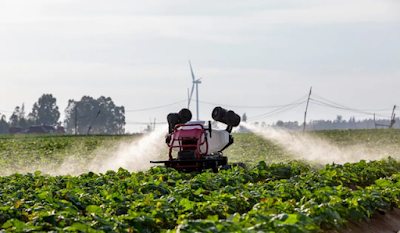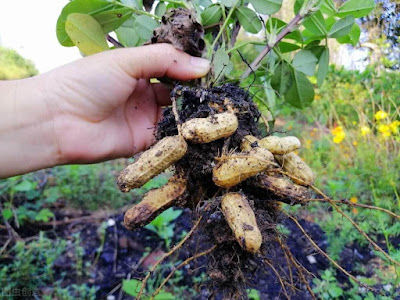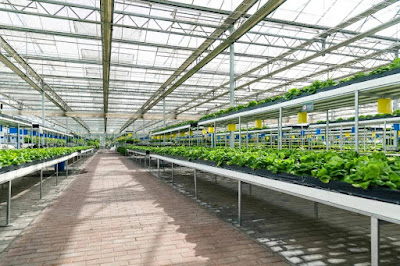The development of organic Farming in the United States
Organic agriculture in the United States was developed relatively early. In the late 1980s, with the growth of consumers' demand for healthy food without chemical preparations and the improvement of farmers' awareness of the environmental pollution caused by chemical preparations, more and more farmers began to engage in organic agricultural production. In the 1930s and 1940s, some insightful farmers in the United States were influenced by the organic farming enlightenment. Support and begin to practice, the most representative of which is J.I.Rodale, the founder of organic agriculture in the United States, who founded Rodale Organic Farm in 1945. Organic food production in the United States began to introduce a registration system from the 1940s to the 1970s, and began to enter a period of rapid growth after the 1980s. According to the statistics released by the International Federation of Organic Agriculture Movements (IFOAM), the organic agricultural area of the United States in 2005 was 1.6 million hectares, ranking fourth in the world. At present, all 50 states in the United States have engaged in organic agricultural production. Among them, California is the largest and most developed agricultural state in the United States. The organic agricultural area accounts for 14.4% of the total organic area in the United States, and the total value of organic agricultural products also accounts for 38.4% of the United States.

2. Advanced experience in the development of organic agriculture in the United States
(1) A good policy and regulatory environment. The US government is mainly committed to promoting the formulation of organic product regulations and national certification standards, and popularizing standardized production methods. Ensure that the products purchased by consumers meet a unified standard. In order to further promote the development of organic agriculture and protect the environment, the federal government provides financial subsidies for the certification of some organic food producers according to the situation.
(2) The concept of organic production is ahead of its time. Paying attention to ecological environmental protection, the organic agricultural production in the United States regards biological control and composting as two magic weapons, especially the use of biological nitrogen fixation and organic matter (plant residues, manure) nitrogen cycle of leguminous plants to provide nitrogen nutrition for crops, weeds, etc. , Pest control mainly relies on crop rotation, natural enemies, biodiversity, grasses, resistant varieties, etc., use chemical control as little as possible, and pay close attention to the impact of agricultural production on the ecological environment. Pay attention to protecting wildlife resources.
(3) Organic agricultural research is oriented to production. Each state university in the United States has set up agricultural technology extension offices in each local area, which fully undertakes the local agricultural technology extension work. The research results can be quickly transformed into productive forces, and the agricultural scientific research, teaching and production are closely integrated, forming a unique "three-in-one" model, which effectively improves the role of agricultural technology in agricultural development.
(4) The degree of networked agricultural information management and services is high. The United States attaches great importance to the use of information technology to achieve social information sharing and information transparency, and the development of information technology and information systems has benefited American agriculture.
(5) Active Agricultural Cooperative Organizations A large number of various agricultural cooperative organizations are active in the United States. Such as agricultural cooperatives and agricultural product industry associations. Its main role is to safeguard the common interests of farmers and to promote and sell agricultural and sideline products.
3. The enlightenment of the development of organic agriculture in the United States
(1) Establish a national organic industry management department to coordinate and support the healthy development of the organic industry. Under the premise that my country has successively promulgated the "Agricultural Product Quality Safety Law" and "Food Safety Law", it is urgent to improve the legal system of organic agricultural products. As a supplement to relevant laws, it is recommended that the Ministry of Agriculture formulate departmental regulations as soon as possible, and issue the "Organic Agricultural Products Management Regulations" to further effectively regulate the production of organic agricultural products.
(2) Accelerate the pace of scientific and technological innovation and promote the organic integration of production, education and research. Organic agriculture has higher requirements for the ecological environment, science and technology, and inputs. We must closely rely on science and technology, and we should focus on strengthening basic research on organic agriculture. At present, it is necessary to focus on researching and solving the technical difficulties of organic agricultural production, taking into account the improvement of organic food deep processing technology, increasing the value-added potential of organic products, and promoting the rapid and healthy development of organic agriculture.
(3) Strengthen the construction of agricultural information infrastructure. Make full use of network information resources With the gradual establishment of my country's socialist market economic system, accurate, sensitive and efficient information is becoming more and more important in promoting agricultural and rural economic development. Therefore, when we strengthen the construction of agricultural infrastructure. More attention should be paid to strengthening the construction of agricultural information infrastructure. At the same time, the comprehensive development and utilization of domestic and foreign information resources. To create conditions for organic farmers. Make full use of social information resources through the network to solve their own difficulties in the process of organic prenatal, intranatal and postnatal. Take organic farming to a new level.
(4) Vigorously cultivate leading enterprises and rural cooperative economic organizations. Speed up the process of agricultural industrialization At present, my country's organic industry economy is not yet developed. The production scale of organic agriculture is small. The quality of farmers is low. Whether it is from the experience of the development of organic agriculture in the United States, or from the actual development of our own production. It is very necessary to increase the support for the leading enterprises in the industrialization of organic agriculture and rural economic cooperation organizations. There is an urgent need to develop various types of farmers' professional cooperative economic organizations. To effectively organize thousands of organic farmers. Lead organic farmers into the market. Go international. Form a pattern of organic specialized production, large-scale operation, and industrialized development under the conditions of a market economy, especially under the premise of the household contract responsibility system











